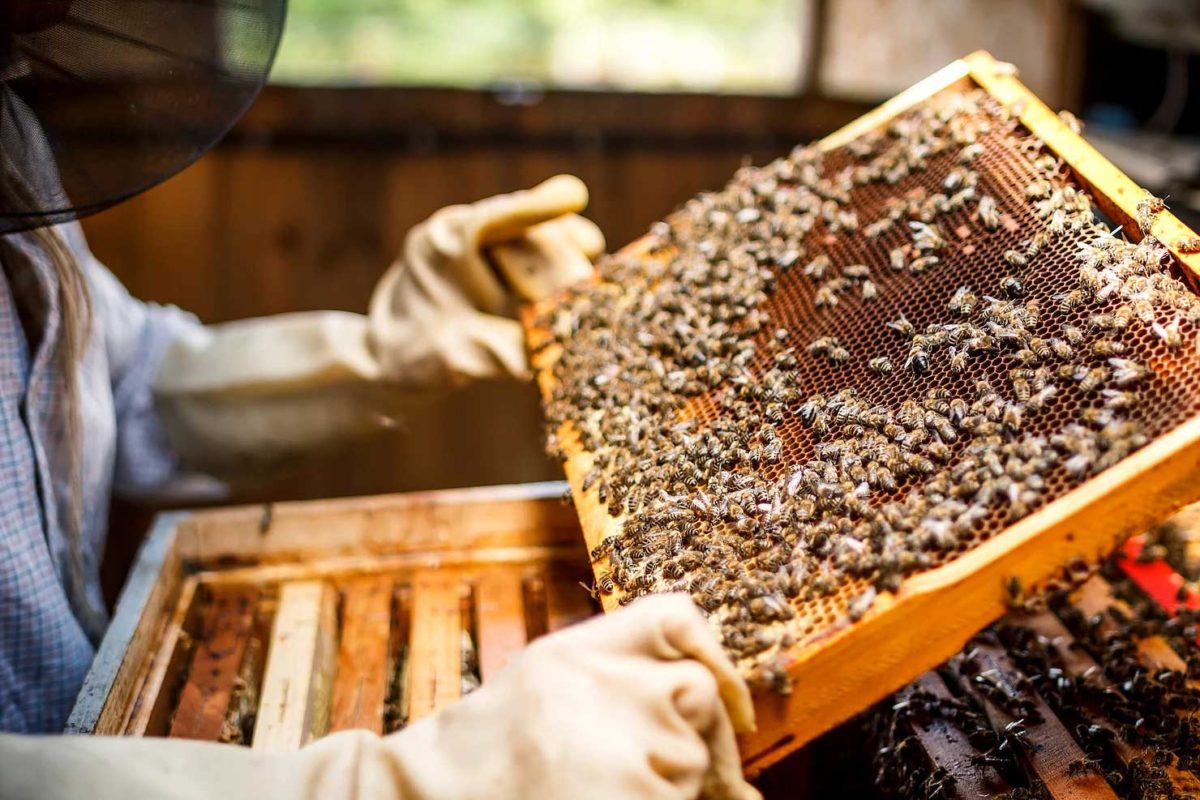Blog Post - Jun 13, 2019
Taking a Moment to Notice
This week, learn about what Dairyland’s Senior Applications Engineer Art Birx does in his free time.
It didn’t take long after starting his orchard – filled with young peach, pear, apple and plum trees – to notice one missing element, and a crucial one at that: bees. They were MIA, nowhere to be found.

Many of us think of bees as the flying nuisances that elicit our highest-pitched squeals or fastest duck-and-run tactics to avoid a painful sting. Though bees get little credit, however, they are significantly responsible for food reaching our tables and nourishing our bodies.
Bees are pollinators, which means they transfer pollen or seeds from one flower to another. This voyage enables fertilization and cross-pollination, making further flower, fruit, and crop growth possible. Almonds, avocados, carrots, broccoli and numerous fruit varieties are just a few of the foods whose success is largely connected to bees. These flying creatures also make honey, that gloriously sweet and sticky substance enjoyed by far more than just the infamous Pooh Bear.
Unfortunately, bee populations across the United States are decreasing at a rapid rate due to Colony Collapse Disorder which is correlated to climate change, pesticide and parasite presence, as well as habitat loss (NRDC). In Art’s North Carolina community specifically, it was discovered that large amounts of herbicide were being used to kill weeds along most roads – likely a key contribution to the decline in neighborhood bees.
So Art decided it was time to not only tend to his orchard but become a beekeeper too, expanding his collection as he is able. By doing so, he not only boosts the trees’ success, he also plays a small part in changing the ecosystem of his community. And it looks like the inhabitants of his hives will be thanking him shortly with early honey.

“I just notice what someone needs and do it,” says Art, whose noticing has led him to serve in numerous other capacities throughout the area. Though not one to self-promote, he has often reached out to a friend, neighbor, church or community member with offers to help. Some days that means mowing the lawn of a man whose wife just died from cancer or cooking meals for his church; other times it’s building a wheelchair-accessible ramp or providing Christmas to families who could not afford to provide a Christmas for their children.
“It all comes back to integrity,” a guiding principle which he defines as “doing the right thing when no one’s watching.” The language of Live Engaged might be relatively new to the company, but Art has tried to pursue this commitment all his life. He might have a plan if he ever wins the lottery (he would use it to support clean water initiatives), but he isn’t waiting for a big win or more money to make a difference in his immediate surroundings. “You can talk about the right path, but to walk the right path is totally different,” he says.
This post is part of an ongoing series, highlighting true stories of living engaged. If you would like to contribute, please reach out to us at LiveEngaged@dairyland.com.